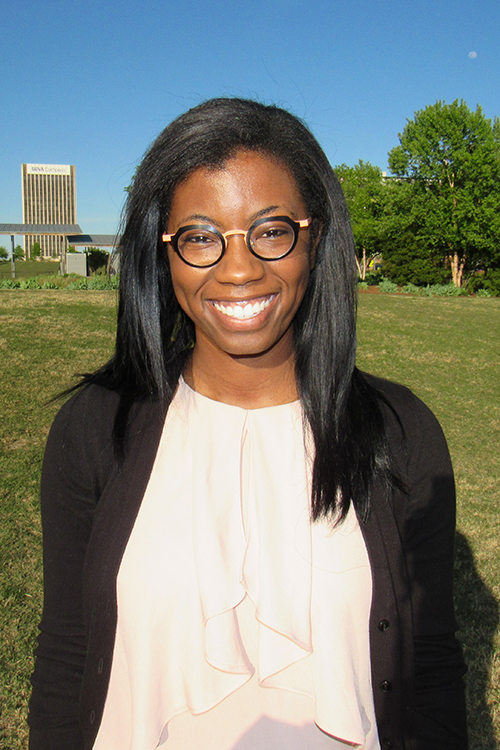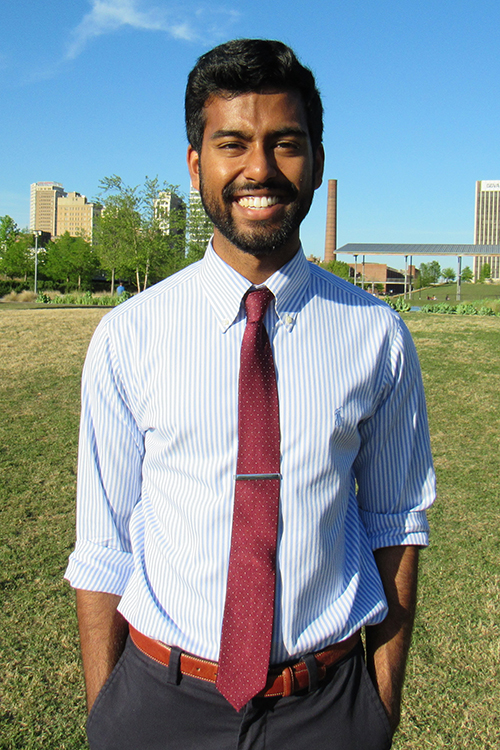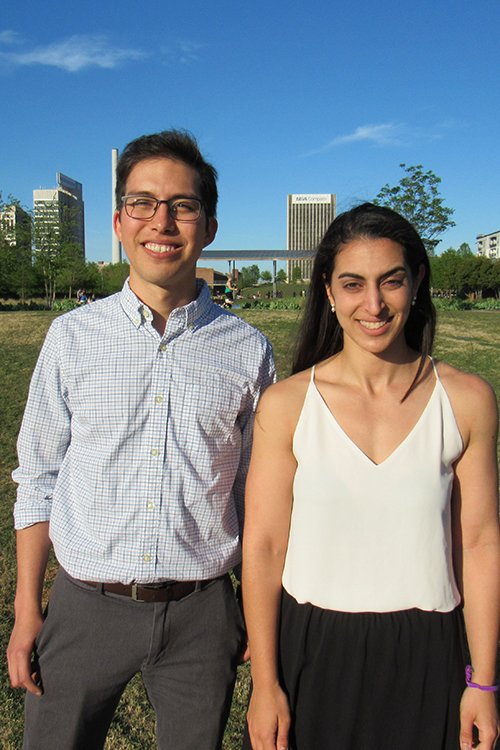Four students from the UAB School of Medicine were named in the 2019-20 class of Alabama Schweitzer Fellows, a group of graduate students across the state who will spend the next year implementing service projects designed to address social factors that impact health.
The Alabama Schweitzer Chapter was founded in 2015 and joins a national network of Albert Schweitzer Fellowship Chapters across the United States. ASF Chapters are dedicated to improving the health of vulnerable people by developing a corps of emerging professionals who enter the workforce with the skills and commitment necessary to address unmet health needs. Applicants come from traditional health-focused graduate programs such as medicine, nursing, dentistry, pharmacy, physician assistant, physical therapy and public health, as well as other disciplines including education, social work, speech-language pathology, law, counseling, and the arts. The Schweitzer Fellowship year expands a student’s educational experience and provides opportunities to gain firsthand knowledge and skills rarely found in traditional professional health training.
While continuing their graduate studies, Schweitzer Fellows design and implement community-based prevention and intervention projects that address chronic health problems, as well as the social determinants of health, such as poverty, the environment, and education. Schweitzer projects encompass everything from the physical environment where people live, to promoting early childhood literacy and parent engagement, to encouraging healthy exercise and nutrition habits, to launching and staffing community health centers and clinics.
“This is a diverse group of students who bring a variety of academic disciplines, prior work experiences and personal backgrounds to the program. But what they have in common is a strong desire to improve the health of individuals and communities and a willingness to devote much time and effort to plan a project that addresses an unmet need,” said Kristin Boggs, executive director of the Albert Schweitzer Fellowship of Alabama. “Perhaps as a reflection of that diversity, we have projects taking place with small start-up nonprofits, large established hospitals, as well as governmental agencies addressing a range of health disparities and social determinants of health. I’m already inspired by and learning from them, and I know it will be an exciting year as they live out servant leadership.”
Fourteen Alabama Fellows will join approximately 151 other 2019-20 Schweitzer Fellows working at program sites around the United States. Upon completion of their Fellowship year, the 2019-20 Alabama Schweitzer Fellows will become Schweitzer Fellows for Life and join a vibrant network of more than 3,400 Schweitzer alumni who are skilled in, and committed to, addressing the health needs of underserved people throughout their careers.
The new Schweitzer Fellows are:

Beavers is focusing on improving the promotion of Health Sciences among students of the Academy of Health and Sciences Program at Carver High School through the development and implementation of a curriculum that strengthens students’ academic skills and increases exposure to and interest in professional health careers. Additionally, the program will seek to foster a strong sense of community and support as well as address issues such as self-esteem, academic confidence, professional development, and community involvement.
Community Site: Academy of Health Sciences-Carver High School
Rahul Gaini
Following emergency department visits at Children’s of Alabama, psychiatric patients are often given a follow-up appointment at the Crisis Clinic. Unfortunately, a large portion of these patients are unable to make their appointments. Gaini is addressing the barriers that prevent psychiatric patients from attending. By identifying and alleviating these barriers, he aims to increase the number of patients that get the care they need. His hope is that he will be able to contribute to the efficacy of Birmingham’s mental health system and alleviate the burden of mental health conditions in the pediatric population.
Community Site: Psychiatric Intake Response Center at Children’s of Alabama, Crisis Clinic at Children’s of Alabama

Soto and Tindal are addressing access to higher education in Birmingham City Schools (BCS) by establishing a community-based college and career advising program. The program will provide BCS students and their families with individualized advising during their junior and senior years of high school to prepare them for post-graduation success. In addition, the program will offer enrichment programs during the summer months focused on developing writing skills and transitioning from high school to college or career. Ultimately, the program hopes to support students to and through their transition from high school to higher education by partnering with BCS, local and regional colleges, and workforce training programs.
Community Site: Birmingham Education Foundation
The full list of Alabama Fellows are:
Autumn Beavers, UAB School of Medicine
Domecia Brown, Samford University McWhorter School of Pharmacy
Cayla Bush, The University of Alabama School of Social Work
Rahul Gaini, UAB School of Medicine
Amber Ingram, The University of Alabama College of Arts & Sciences
Heather Johnson, UAB School of Public Health
Danielle Larkin, UAB School of Nursing
Jessica McKenzie, UAB School of Public Health'
Jason Perry, University of Montevallo College of Education (Counseling)
Tammy Ruffin, UAB School of Education
Edgar Soto and Rachel Tindal, UAB School of Medicine
Larissa Strath, UAB College of Arts & Sciences
Adrienne Wallace, The University of Alabama Hugh Culverhouse Jr. School of Law